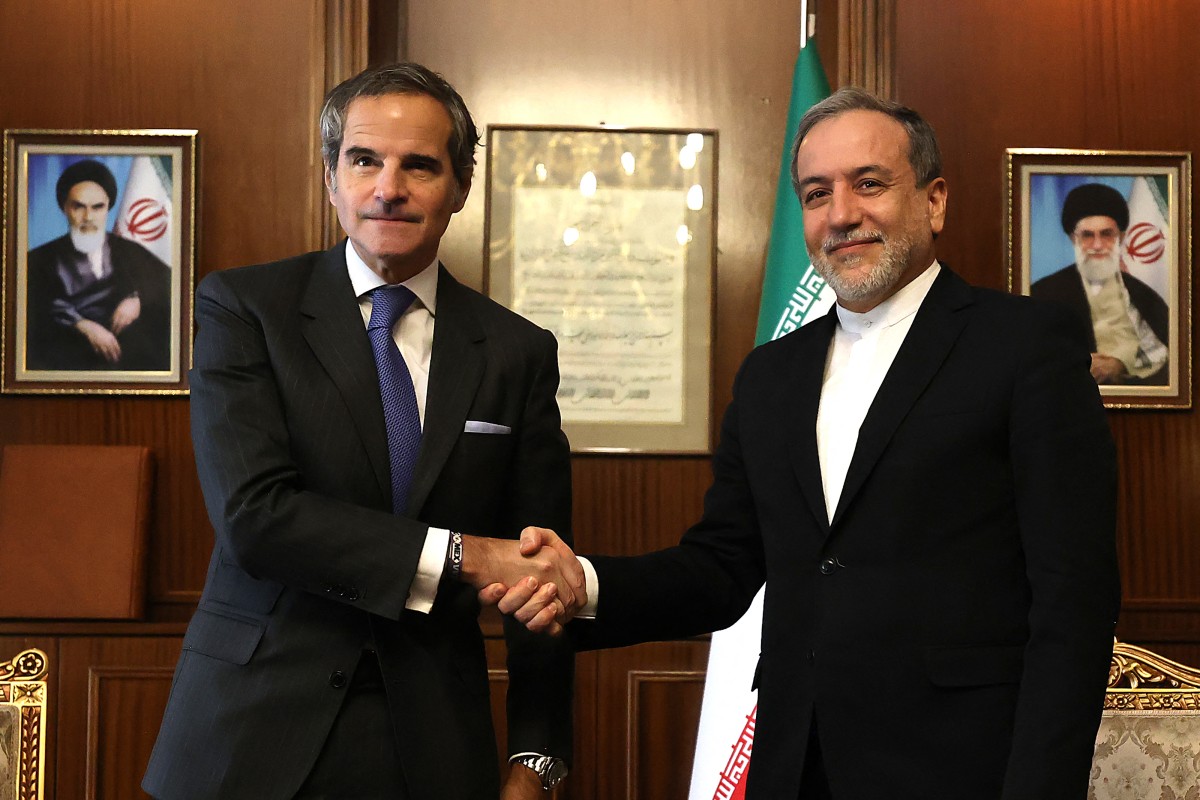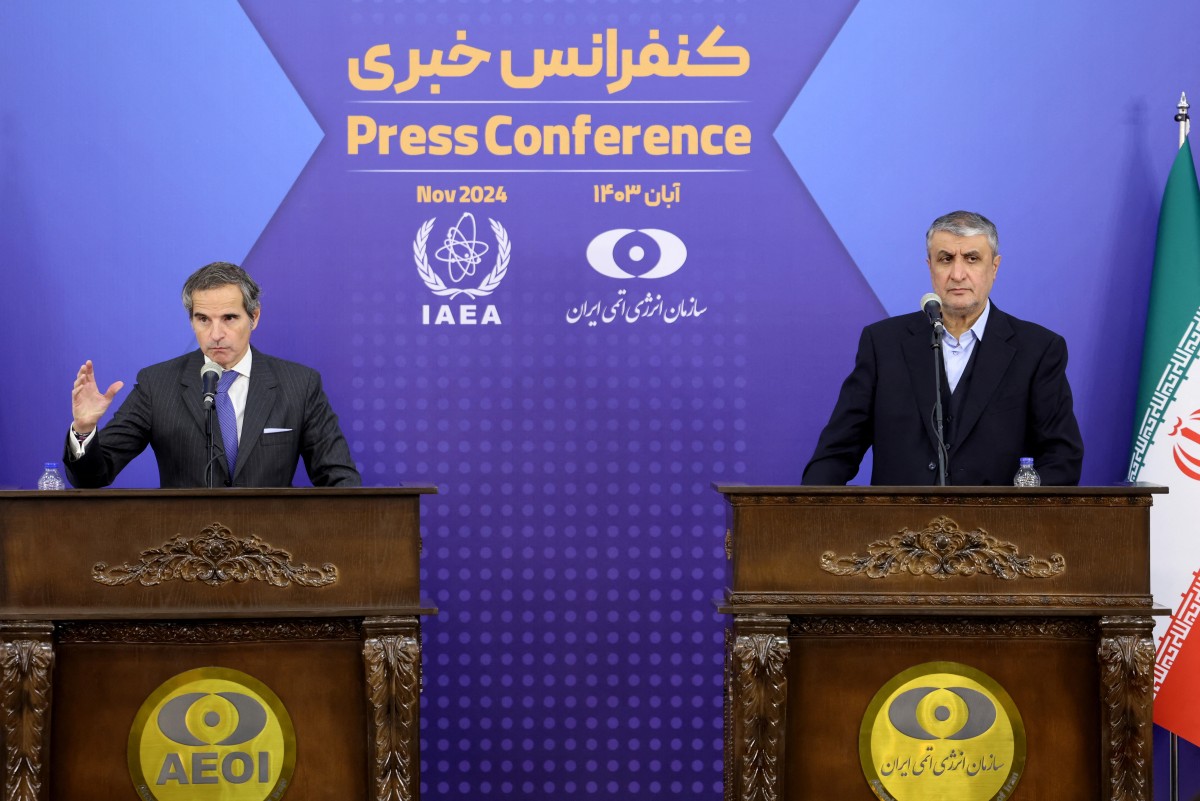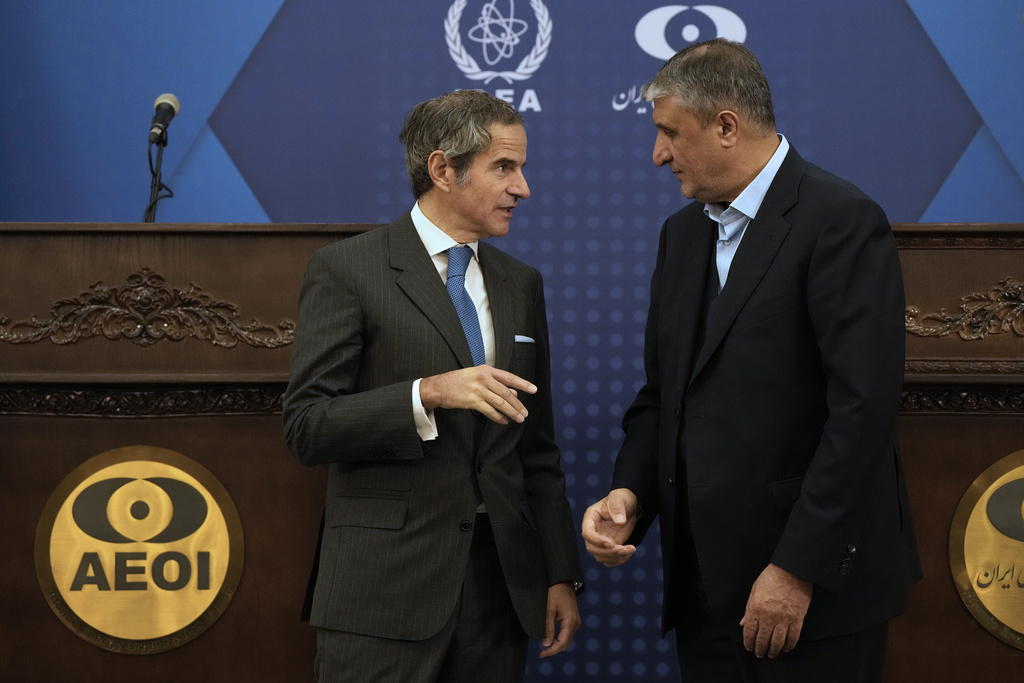
TEHRAN - Iran's Foreign Minister Seyed Abbas Araghchi said on Thursday that the country is ready for nuclear negotiations, depending on how serious the other parties are in this regard.
He made the remarks following a meeting with visiting Director-General of the International Atomic Energy Agency (IAEA) Rafael Grossi earlier in the day in the Iranian capital, Tehran, according to a statement released by Iran's Foreign Ministry.
Araghchi described his talks with Grossi as "good and constructive", stressing that the two sides would "chart a new path for reducing tensions regarding the nuclear issue between Iran, the agency, and other parties".
"Since we are sure about the peaceful nature of our nuclear program, we have no problem cooperating with the agency and can continue these collaborations. However, to that end, the other parties should also fulfill their obligations and responsibilities," said the foreign minister.
ALSO READ: UN nuclear watchdog chief arrives in Iran for high-level talks

Also on Thursday, following a meeting with Grossi, Iran's nuclear chief Mohammad Eslami warned that Tehran would respond promptly to any resolutions issued by the IAEA Board of Governors against the country.
At a joint press conference, Eslami said Iran would not be impacted by "pressures and will advance its nuclear program within the framework of its national interests".
The Iranian nuclear chief also expressed his willingness to maintain interactions with the IAEA. "If they choose the path of interaction, Iran would also interact in response," he said.
For his part, Grossi emphasized that Iran's nuclear facilities should not be attacked.
He made the remarks in response to a question about Israel's threats to attack Iran's nuclear sites, saying, "I have always stressed that nuclear installations should not be subject to any attack."

According to Grossi, the agency and Iran have been cooperating for a long time, and "now is an important time to achieve palpable results and convey the message to the world that we choose a path other than confrontation."
Heading a delegation, Grossi arrived in Tehran Wednesday night for talks with Iranian officials.
His visit comes as several outstanding issues remain unresolved between Tehran and the IAEA, including the agency's claims of having found "traces of uranium" at a number of "undeclared" Iranian sites, which Iran has repeatedly rejected.
READ MORE: IAEA chief due in Iran Wednesday for talks on nuclear issues
Iran signed the nuclear deal, formally known as the Joint Comprehensive Plan of Action (JCPOA), with world powers in July 2015, accepting restrictions on its nuclear program in exchange for the lifting of sanctions by the West. However, the United States withdrew from the agreement in May 2018, reinstating sanctions and prompting Iran to scale back some of its nuclear commitments.


